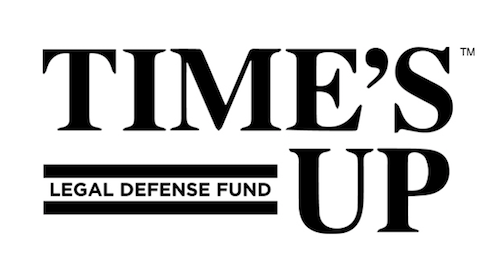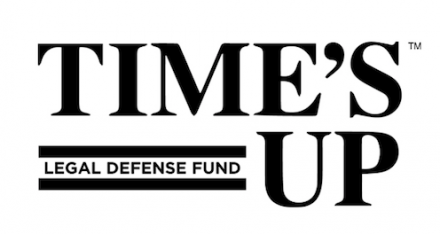Abortion rights, women of color, and LGBTQIA+ people are under attack. Pledge to join us in fighting for gender justice.
We Must Continue to Share the Stories of Survivors

 “They made me feel like I was worthless and disposable,” says one of the plaintiffs in a lawsuit against the FBI.
“They made me feel like I was worthless and disposable,” says one of the plaintiffs in a lawsuit against the FBI.
These are the types of stories I read every day as an intern with the Times Up Legal Defense Fund. After hearing these countless stories, it makes me angry when people say that #MeToo is done or has not changed anything.
Now that so many workers are coming forward, the systematic pattern of assault and harassment in so many workplaces is no longer whispered about behind closed doors. Instead, it is public, and people are talking about it. #MeToo and the work of organizations like the TIME’S UP Legal Defense Fund have helped survivors to tell their stories, awakened individuals to the egregious nature of assault and harassment at work and elicited substantial changes in law and policy.
Nonetheless, hearing survivor’s stories is a constant reminder of how much more needs to be done. While we have made progress, individuals are still harassed and assaulted every day. No matter the industry, the narrative seems to remain relatively constant. Someone with power in a workplace takes advantage of someone else. After saying something, they are retaliated against. This pattern is repeated over and over.
Here are some of the stories of the brave workers who are coming forward to make their workplaces safe and respectful.
16 FBI Employees: Government Agency
During her FBI training, Erika Wesley was told by some of her male instructors that women needed to take birth control to control their moods. Another former trainee describes how she would have a friend escort her at night because one of her classmates would follow her. These are the stories of two of the 16 women who, with the help of the TIMES UP Legal Defense Fund, are suing the FBI for allowing rampant sexual harassment at the training facilities, permitting retaliation, and supporting a “good-old-boy network” that creates an unequal playing field for female trainees. These stories highlight the pervasive nature of harassment in male-dominated industries.
McDonalds Employees: Restaurant Industry
Brittany Hoyos was 16 when she started her first job at McDonalds. Shortly after, her manager began harassing her at work. After her supervisors were notified, she was retaliated against and demoted. Her mother, who was also a McDonald’s employee at that time, was also subjected to retaliation in response to reporting, and both were ultimately left unemployed. Brittany’s case is one of the 25 others that the TIMES UP Legal Defense Fund along with the ACLU and Fight for $15 are filing against McDonalds. The complaints against McDonald’s include gender-based discrimination, sexual harassment in the workplace, and retaliation for speaking up.
Katie Boston: Medical Sales
Katie was working as a medical sales representative for Options Medical when a surgeon sexually harassed her both verbally and physically. When she told her supervisors, she says they told her to allow the harassment to continue in order to make the sale to the surgeon. Even worse, the company eventually blamed her for the harassment and denied her future training. After finding an attorney and public relations assistance through the TIMES UP Legal Defense Fund, Katie is fighting back and is filing a discrimination suit against the company.
Karen Dubnar: Advertisement Firm
When Karen Dubnar was the creative director at the advertisement agency TracyLocke, she was sexually harassed and wrongfully terminated. Multiple men at the agency verbally harassed her and subjected her to unwanted touching. After recognizing the harmful culture within the company, Dunbar attempted to organize female employees to come together. As a result, she was fired. With the support of the Times Up Legal Defense Fund, Dunbar is exposing the harassment she endured to help change the toxic environment at TracyLocke as well as at other advertisement agencies.
Remember that our work is not over. Continue to stand with these strong individuals, uplift their stories, and work towards a world where we all have safe and respectful workplaces.
